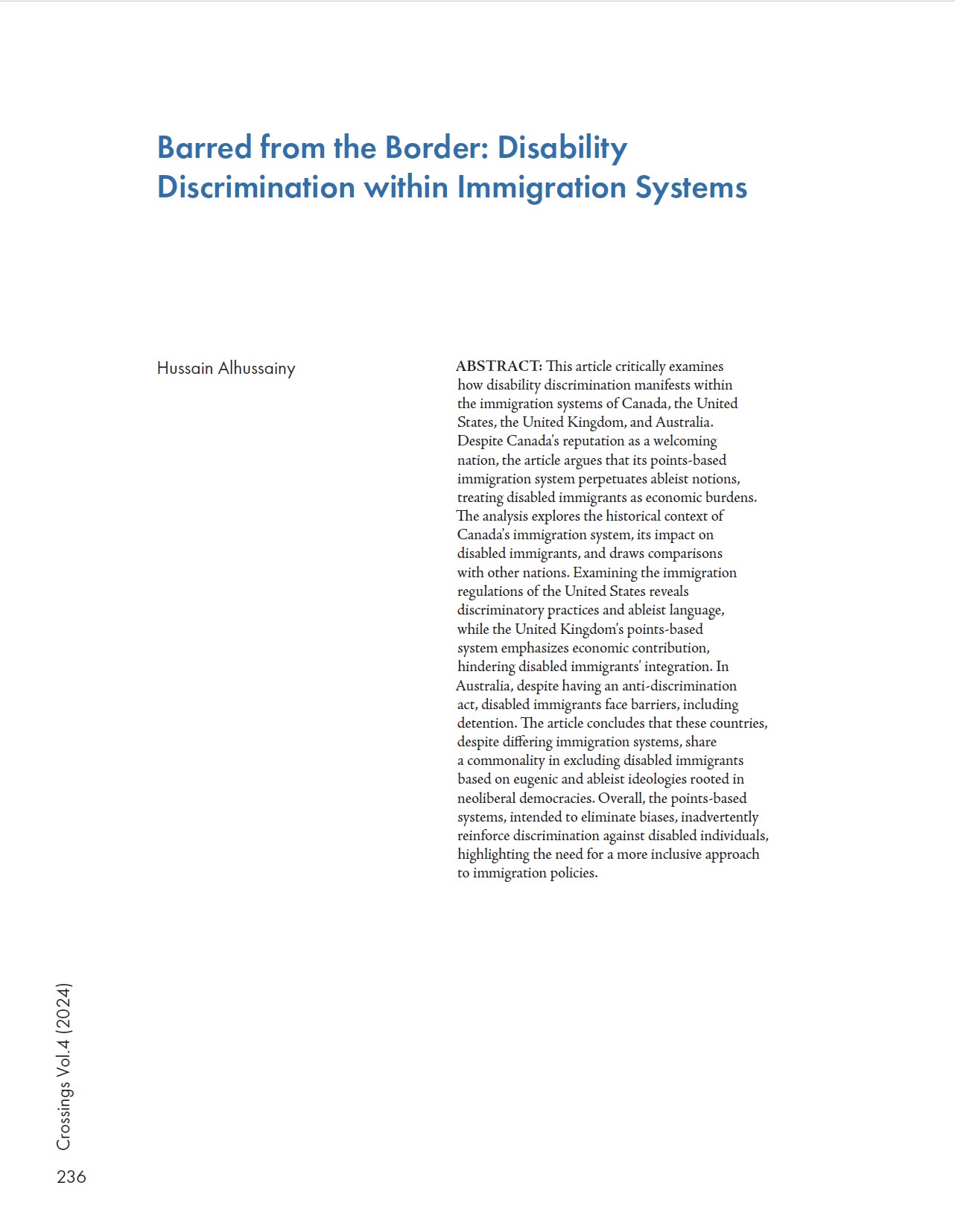Barred from the Border
Disability Discrimination within Immigration Systems
DOI:
https://doi.org/10.29173/crossings200Abstract
This article critically examines how disability discrimination manifests within the immigration systems of Canada, the United States, the United Kingdom, and Australia. Despite Canada's reputation as a welcoming nation, the article argues that its points-based immigration system perpetuates ableist notions, treating disabled immigrants as economic burdens. The analysis explores the historical context of Canada's immigration system, its impact on disabled immigrants, and draws comparisons with other nations. The examination of the United States reveals discriminatory practices and ableist language, while the United Kingdom's points-based system emphasizes economic contribution, hindering disabled immigrants' integration. In Australia, despite having an anti-discrimination act, disabled immigrants face barriers, including detention. The article concludes that these countries, despite differing immigration systems, share a commonality in excluding disabled immigrants based on eugenic and ableist ideologies rooted in neoliberal democracies. Overall, the points-based systems, intended to eliminate biases, inadvertently reinforce discrimination against disabled individuals, highlighting the need for a more inclusive approach to immigration policies.

Downloads
Published
Issue
Section
License
Copyright (c) 2024 Hussain Alhussainy

This work is licensed under a Creative Commons Attribution 4.0 International License.

